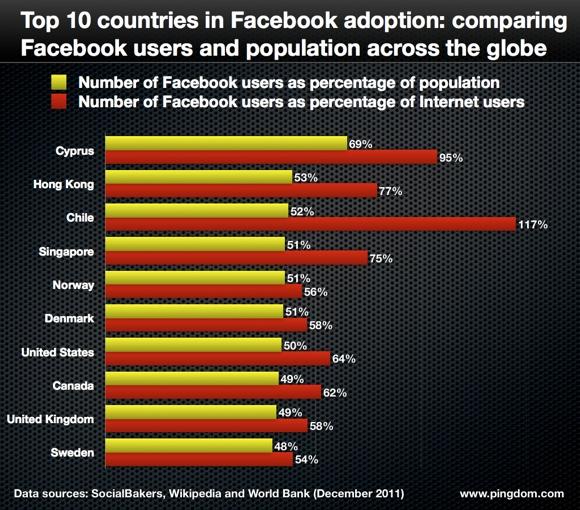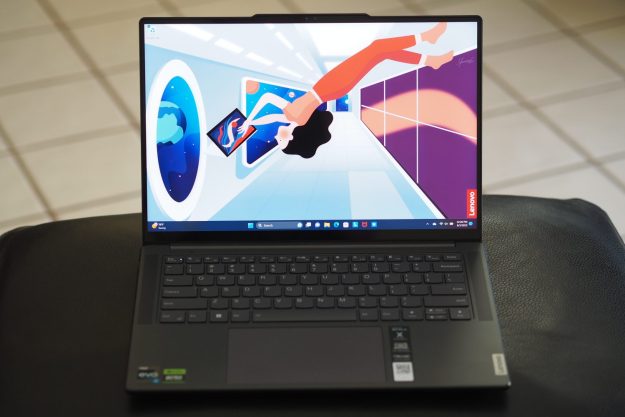
According to figures compiled by site monitoring service Pingdom, Facebook is now so popular that over half the total population of some countries are using the service. Countries leading the way with Facebook adoption are Cyprus (69 percent), Hong Kong (53 percent), and Chile (52 percent), followed by Singapore, Norway, and Denmark, each with 51 percent penetration.
Pingdom’s analysis compares data from Socialbaker on the number of Facebook users in various countries around the world to information from the World Bank and Wikipedia about nations’ total numbers of Internet users and total population. The figures are necessarily fuzzy—there’s simply no way to have precise, up-to-date figures on this sort of thing—but the results are surprising. Pingdom finds seven countries where half or more of the total population is on Facebook—and the United States just barely cracks the list, coming in seventh place.
However, the data for Chile, above, shows some of the frailty of the figures in Pingdom’s comparison: after all, it’s just not possible for 117 percent of a country’s Internet users to be on Facebook. (Pingdom’s analysis found 22 countries with similarly upside-down figures.) One possible source of statistical oddities might be businesses, schools, and other organizations operating Facebook accounts—in many cases, multiple Facebook accounts—being counted as individual Facebook users. And, of course, many Facebook users operate multiple accounts: say, a personal account, an account associated with their job, and maybe another account under a pseudonym devoted specifically to their video gaming or other exploits.
Similarly, the World Bank’s most recent data on the number of Internet users in a country is from 2010, and while Wikipedia’s country population data is drawn from a number of sources (many of which are “official”), there no realistic way to independently verify the information.
Pingdom admits there might be issues with the data in its comparison, but prefers to gloss over Chile (and 21 other outliers) by saying it could mean “Chileans are just crazy about Facebook.” It could also mean Pingdom’s analysis is a classic case of comparing apple’s to oranges and coming up with Kool-Aid. Regarding Cyprus, it’s difficult to accept Pingdom’s claim “virtually the whole island is on Facebook” given the island’s historically deep and bitter divisions and Cyprus’s own estimate last month that 59 percent of Cypriot Internet users participate in any social networking services at all.

Source: Statistical Service of the Republic of Cyprus’s Ministry of Finance.
Nonetheless, Pingdom’s comparison’s highlight both the broad worldwide adoption of Facebook and the importance of international users to Facebook’s continued growth. As Pingdom points out, two of the world’s most populous nations—India and China—could represent huge growth opportunities for Facebook, although China might be a tough nut to crack: Facebook is currently blocked by the Great Firewall.
Editors' Recommendations
- How to download a video from Facebook
- A cheaper version of the Meta Quest 3 now seems more likely than ever
- How to set your Facebook Feed to show most recent posts
- How to create multiple profiles on a Facebook account
- Intel’s new Core Ultra chips needed to be more than this


